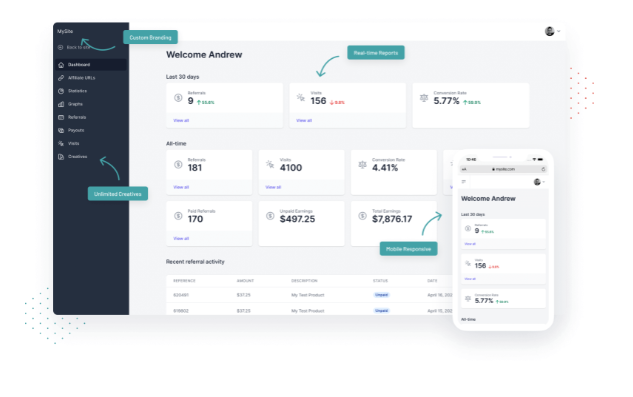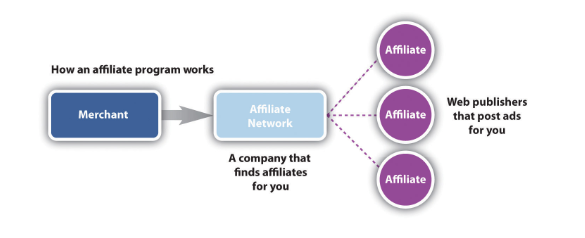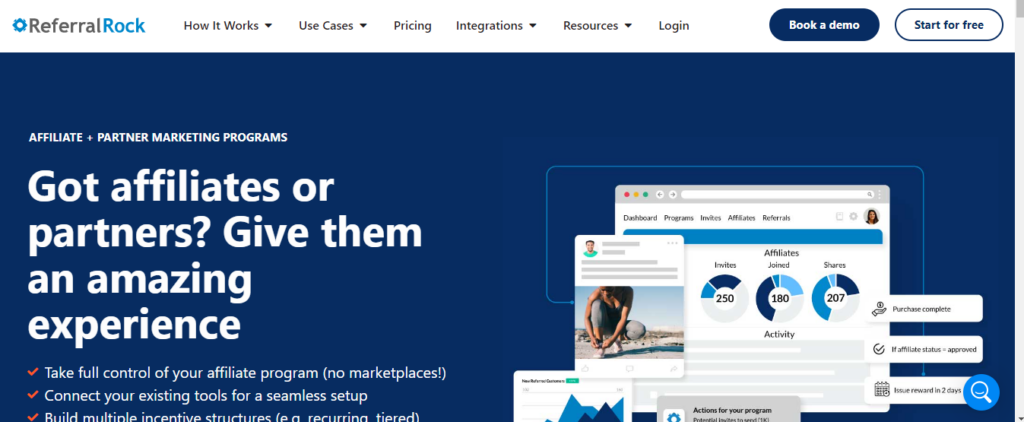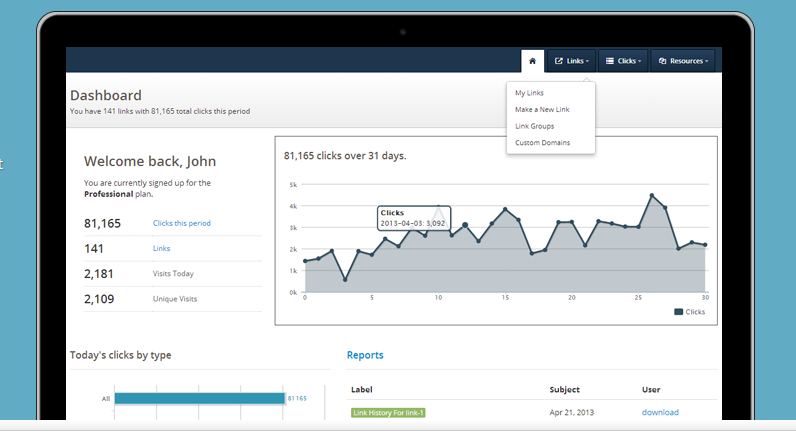Introduction
Affiliate program management is the cornerstone of successful affiliate marketing endeavors, orchestrating the intricate dance between advertisers and publishers to drive revenue and foster mutually beneficial partnerships.
In essence, it refers to the strategic oversight and administration of affiliate programs, encompassing tasks such as affiliate recruitment, performance tracking, and relationship management.
In the rapidly evolving landscape of digital marketing, the role of effective affiliate program management has never been more crucial. As businesses worldwide continue to embrace the power of affiliate marketing as a cost-effective and performance-driven advertising channel, the need for skilled program managers adept at navigating this complex ecosystem becomes paramount.
In 2024, amidst shifting consumer behaviors, technological advancements, and regulatory changes, mastering the art of affiliate program management is not just a competitive advantage—it’s a strategic imperative for sustained growth and profitability.
Overview of the Evolving Landscape of Affiliate Marketing
The realm of affiliate marketing is dynamic and ever-changing, shaped by emerging trends, innovations, and consumer preferences. From the rise of influencer partnerships to the integration of artificial intelligence in performance tracking, the landscape of affiliate marketing in 2024 is characterized by unprecedented opportunities and challenges.
Understanding this evolving terrain is essential for affiliate program managers to adapt their strategies, leverage new channels, and stay ahead of the curve in an increasingly competitive marketplace.
Understanding Affiliate Program Management
Affiliate program management entails the orchestration of various key components to ensure the seamless operation and optimization of affiliate marketing initiatives.
Let’s delve into the fundamental elements of affiliate program management, the pivotal role of affiliate managers, and the emerging trends shaping the landscape in 2024.
Key Components of Affiliate Program Management
A. Affiliate Recruitment and Onboarding: At the core of affiliate program management lies the task of identifying and recruiting suitable affiliates to promote products or services. This involves outreach, negotiation of terms, and onboarding affiliates into the program. Effective recruitment strategies focus on aligning affiliate interests with the advertiser’s goals, fostering long-term partnerships.
B. Program Setup and Configuration: Once affiliates are onboarded, the next step is to set up and configure the affiliate program. This includes defining commission structures, creating promotional materials, and establishing tracking mechanisms to monitor affiliate performance accurately.
A well-configured program lays the foundation for efficient operation and accurate attribution of conversions.
C. Performance Tracking and Analysis: Central to affiliate program management is the ability to track affiliate performance and analyze key metrics to measure the program’s effectiveness. Tracking tools and analytics platforms provide insights into clicks, conversions, and revenue generated by affiliates, enabling program managers to optimize performance and identify areas for improvement.
D. Communication and Support: Effective communication and support are essential for fostering positive relationships with affiliates and ensuring their success. Affiliate managers play a crucial role in providing timely assistance, addressing queries, and offering resources to help affiliates maximize their earning potential.
Clear communication channels and responsive support contribute to a collaborative and productive affiliate ecosystem.
Role of Affiliate Managers in Program Management
Affiliate managers serve as the linchpin of affiliate program management, overseeing day-to-day operations, nurturing affiliate relationships, and driving program growth. Their responsibilities encompass affiliate recruitment, program optimization, performance analysis, and strategic planning.
By serving as a liaison between advertisers and affiliates, affiliate managers play a pivotal role in maximizing program ROI and fostering a thriving affiliate community.
Trends and Innovations in Affiliate Program Management in 2024
In 2024, affiliate program management is witnessing a paradigm shift driven by technological advancements, changing consumer behaviors, and industry innovations.
Key trends include the integration of AI and machine learning in performance tracking, the rise of influencer marketing as a dominant force in affiliate promotion, and the emergence of new affiliate models such as subscription-based programs and loyalty rewards.
Staying abreast of these trends and embracing innovative approaches is essential for affiliate program managers to adapt to the evolving landscape and stay ahead of the competition.

Strategies for Effective Affiliate Program Management
Managing an affiliate program requires a strategic approach to ensure its success and sustainability. Let’s explore key strategies for effective affiliate program management, including setting clear objectives, leveraging technology, nurturing relationships with affiliates, continuous optimization, and addressing topical gaps in 2024.
Setting Clear Program Objectives and KPIs
Setting clear program objectives and key performance indicators (KPIs) is crucial for guiding the direction of the affiliate program and measuring its success. Objectives may include revenue targets, customer acquisition goals, or increasing brand awareness.
KPIs such as conversion rates, click-through rates, and average order value provide quantifiable metrics to track progress and evaluate performance.
Leveraging Automation and Technology
- Use of Affiliate Tracking Software: Utilizing affiliate tracking software streamlines the process of monitoring affiliate activities, tracking conversions, and attributing revenue to specific affiliates. These tools provide real-time insights into affiliate performance and help identify top-performing partners.
- Automation of Routine Tasks: Automating routine tasks such as affiliate payouts, reporting, and communication saves time and enhances efficiency. Automated workflows streamline operations, reduce manual errors, and free up resources to focus on strategic initiatives.
Building and Nurturing Relationships with Affiliates
- Effective Communication Strategies: Maintaining open lines of communication with affiliates is essential for fostering strong relationships. Regular updates, newsletters, and personalized communications keep affiliates informed and engaged. Additionally, providing educational resources and training sessions helps affiliates optimize their performance.
- Providing Timely Support and Resources: Offering timely support and resources to affiliates ensures they have the tools and guidance needed to succeed. This includes providing marketing materials, product information, and technical assistance. Addressing affiliate inquiries promptly and offering personalized support builds trust and loyalty.
Continuous Optimization and Experimentation
- A/B Testing of Promotional Materials: Conducting A/B tests on promotional materials such as banners, landing pages, and email creatives helps identify the most effective strategies for driving conversions. Testing different messaging, visuals, and calls-to-action allows for data-driven optimization and improved performance.
- Performance Analysis and Iteration Based on Data: Analyzing performance data and metrics provides valuable insights into affiliate performance and program effectiveness. Identifying trends, patterns, and areas for improvement enables program managers to iterate strategies, refine targeting, and optimize program outcomes.

Click to read further articles
Tools and Resources for Affiliate Program Management
Managing an affiliate program efficiently requires leveraging the right tools and resources to streamline operations, track performance, recruit affiliates, and optimize workflows.
Let’s explore the essential components of affiliate program management and the tools available to support these functions.
Overview of Popular Affiliate Management Platforms
Affiliate management platforms serve as central hubs for managing all aspects of affiliate programs, from recruitment to tracking and reporting. Some popular affiliate management platforms include:
- AffiliateWP: A WordPress plugin that integrates seamlessly with WordPress websites, offering features for affiliate tracking, commission management, and performance reporting.
- Post Affiliate Pro: A comprehensive affiliate tracking software that provides real-time tracking, advanced commission structures, and multi-level marketing capabilities.
- CJ Affiliate (formerly Commission Junction): A global affiliate marketing network that connects advertisers with publishers, offering a wide range of affiliate programs across various industries.
- ShareASale: An affiliate marketing network known for its user-friendly interface, extensive merchant offerings, and robust reporting tools.

Essential Tools for Tracking and Analytics
Effective tracking and analytics are essential for monitoring affiliate performance, identifying trends, and optimizing program outcomes. Some essential tools for tracking and analytics include:
- Google Analytics: A powerful analytics platform that provides insights into website traffic, user behavior, and conversion metrics. Google Analytics can be integrated with affiliate tracking systems to attribute conversions accurately.
- Affiliate Tracking Software: Dedicated affiliate tracking software allows program managers to track clicks, conversions, and revenue generated by affiliates. These tools provide real-time reporting, performance metrics, and attribution analysis.
- Performance Dashboards: Customizable dashboards and reporting tools offer visual representations of affiliate performance metrics, allowing for easy monitoring and analysis.
Resources for Affiliate Recruitment and Engagement
Recruiting and engaging affiliates is crucial for expanding the reach of an affiliate program and fostering productive partnerships. Resources for affiliate recruitment and engagement include:
- Affiliate Networks: Joining affiliate networks allows advertisers to access a pool of potential affiliates and leverage the network’s resources for recruitment and management.
- Affiliate Directories: Online directories list affiliate programs available for participation, making it easier for affiliates to discover and join relevant programs.
- Affiliate Recruitment Tools: Tools and platforms specifically designed for affiliate recruitment provide features for outreach, affiliate discovery, and partnership management.

Best Practices for Integrating Affiliate Management Tools into Existing Workflows
Integrating affiliate management tools into existing workflows ensures seamless operation and maximizes efficiency. Best practices for integration include:
- API Integrations: Utilizing API integrations allows affiliate management platforms to communicate with other systems, such as e-commerce platforms or CRM software, for automated data exchange and streamlined workflows.
- Customization and Configuration: Customizing affiliate management tools to align with existing workflows and business processes ensures a seamless integration and optimal performance.
- Training and Support: Providing training and support to staff members involved in affiliate program management ensures they understand how to effectively use the tools and incorporate them into their daily workflows.

Case Studies and Success Stories
In the realm of affiliate program management, examining real-world examples of successful strategies and outcomes provides valuable insights and inspiration for program managers.
Let’s explore case studies and success stories from various industries, analyzing their key components and extracting actionable takeaways.
Showcase of Successful Affiliate Program Management Strategies
A. Leveraging Influencer Partnerships: A clothing retailer successfully increased brand visibility and sales by partnering with fashion influencers on social media platforms. By providing influencers with exclusive discount codes and commission incentives, the retailer incentivized audience engagement and drove conversions.
B. Content Optimization for SEO: A software company optimized its affiliate program by providing affiliates with keyword-rich content and SEO guidance. By aligning affiliate content with target keywords and search intent, the company achieved higher search engine rankings and increased organic traffic to its website.
C. Segmented Email Campaigns: An e-commerce store implemented segmented email campaigns for different affiliate segments based on performance metrics and audience demographics. By tailoring promotional content and offers to specific affiliate segments, the store achieved higher open and click-through rates, resulting in increased sales.
Analysis of Real-World Examples from Different Industries
Real-world examples of successful affiliate program management strategies span across diverse industries, including retail, technology, finance, and travel. By analyzing case studies from these industries, program managers can identify common trends and strategies that contribute to success:
A. Retail: Successful retail affiliate programs often leverage seasonal promotions, exclusive discounts, and user-generated content to drive conversions and increase customer engagement.
B. Technology: Technology companies focus on providing affiliates with valuable resources, such as product tutorials, demo videos, and technical support, to empower them to effectively promote complex products and services.
C. Finance: Finance affiliate programs prioritize transparency and trust, offering affiliates access to comprehensive reporting and compliance resources to ensure regulatory compliance and build credibility with audiences.
D. Travel: Travel affiliate programs capitalize on visual content and storytelling to inspire wanderlust and drive bookings. Partnerships with travel influencers, destination guides, and travel bloggers help attract and convert prospective travelers.
Lessons Learned and Actionable Takeaways for Program Managers
Drawing lessons from successful case studies, program managers can glean actionable takeaways to optimize their affiliate programs and drive results:
A. Focus on Relationship Building: Cultivate strong relationships with affiliates through open communication, personalized support, and mutual trust to foster long-term partnerships and loyalty.
B. Data-Driven Decision Making: Utilize performance data and analytics to identify trends, track key metrics, and make informed decisions about program optimization and resource allocation.
C. Continuous Testing and Optimization: Embrace a culture of experimentation by conducting A/B tests, analyzing results, and iterating strategies to refine performance and maximize ROI.
D. Adaptability and Flexibility: Stay agile and adaptable in response to changing market dynamics, emerging trends, and evolving consumer preferences to maintain a competitive edge in the affiliate landscape.
Future Trends and Predictions
The landscape of affiliate program management is constantly evolving, driven by emerging technologies, shifting consumer behaviors, and industry innovations.
Let’s explore the future trends and predictions shaping the trajectory of affiliate marketing in 2024 and beyond, along with recommendations for staying ahead of the curve in program management.
Emerging Technologies Shaping the Future of Affiliate Program Management
A. Blockchain Technology: Blockchain technology holds the potential to revolutionize affiliate program management by providing transparent, secure, and immutable tracking of affiliate transactions. Smart contracts can automate commission payments and ensure fair attribution, while blockchain-based marketplaces enable direct peer-to-peer partnerships between advertisers and affiliates.
B. Artificial Intelligence (AI) and Machine Learning: AI-powered algorithms and machine learning models are transforming affiliate program management by enabling predictive analytics, personalized recommendations, and automated optimization. AI-driven tools can analyze vast amounts of data to identify trends, detect anomalies, and optimize targeting strategies for maximum effectiveness.
C. Augmented Reality (AR) and Virtual Reality (VR): AR and VR technologies are reshaping the affiliate marketing landscape by offering immersive, interactive experiences that drive engagement and conversion. Affiliates can leverage AR/VR content to showcase products in lifelike environments, allowing consumers to visualize and experience products before making a purchase.
Predictions for the Evolution of Affiliate Marketing in 2024 and Beyond
A. Rise of Micro-Influencers: As consumers seek authenticity and relatability, micro-influencers—individuals with smaller, niche audiences—are expected to play a more significant role in affiliate marketing. Brands will increasingly collaborate with micro-influencers to tap into highly engaged communities and drive targeted conversions.
B. Integration of Voice Search and AI Assistants: With the proliferation of voice-enabled devices and AI assistants, affiliate marketers will need to optimize their strategies for voice search and conversational commerce. Voice-activated affiliate links, personalized recommendations, and voice-driven content will become integral components of affiliate marketing campaigns.
C. Expansion of Affiliate Programs into New Verticals: Traditional affiliate marketing verticals such as retail and e-commerce will continue to thrive, but new opportunities will emerge in sectors such as healthcare, education, and sustainability. Affiliate programs will diversify to encompass a broader range of industries and niches, offering affiliates new avenues for monetization.
Recommendations for Staying Ahead of the Curve in Program Management
To stay ahead of the curve in affiliate program management, program managers should:
A. Embrace Innovation: Stay abreast of emerging technologies and trends in affiliate marketing, and be proactive in adopting innovative solutions that enhance program performance and efficiency.
B. Invest in Education and Training: Continuously invest in the education and training of affiliate managers and partners to ensure they have the knowledge and skills needed to leverage new tools and techniques effectively.
C. Cultivate Strategic Partnerships: Foster strategic partnerships with technology providers, industry experts, and thought leaders to gain insights, access resources, and collaborate on cutting-edge initiatives that drive program success.

Conclusion
In the realm of digital marketing, mastering effective Affiliate Program Management is not just a skill—it’s a strategic imperative for unlocking the full potential of affiliate marketing initiatives.
With the right strategies in place, Affiliate Program Management can drive revenue growth, expand brand reach, and foster thriving partnerships that propel businesses towards success.
Throughout this journey, we’ve explored the fundamental components, best practices, and future trends shaping the landscape of Affiliate Program Management.
From setting clear objectives and leveraging innovative technologies to nurturing relationships and staying adaptable in the face of change, the keys to success are clear.
In the dynamic Affiliate Marketing landscape, adaptability and continuous learning are not just recommended—they’re essential.
By staying agile, embracing emerging trends, and cultivating a culture of innovation, program managers can navigate the evolving terrain with confidence and drive sustained success for their affiliate programs.
As we look ahead, the potential impact of effective Affiliate Program Management on affiliate success is immense.
By empowering affiliates, optimizing performance, and fostering collaborative partnerships, program managers play a pivotal role in shaping the future of affiliate marketing.
So, whether you’re a seasoned program manager or embarking on your affiliate marketing journey, remember this: mastering Affiliate Program Management is not just about managing campaigns—it’s about shaping the future of digital marketing and driving sustainable growth in an ever-changing landscape.
Embrace the challenge, seize the opportunities, and watch your affiliate program soar to new heights of success.
Here’s to the future of Affiliate Program Management—a future filled with innovation, collaboration, and endless possibilities.


